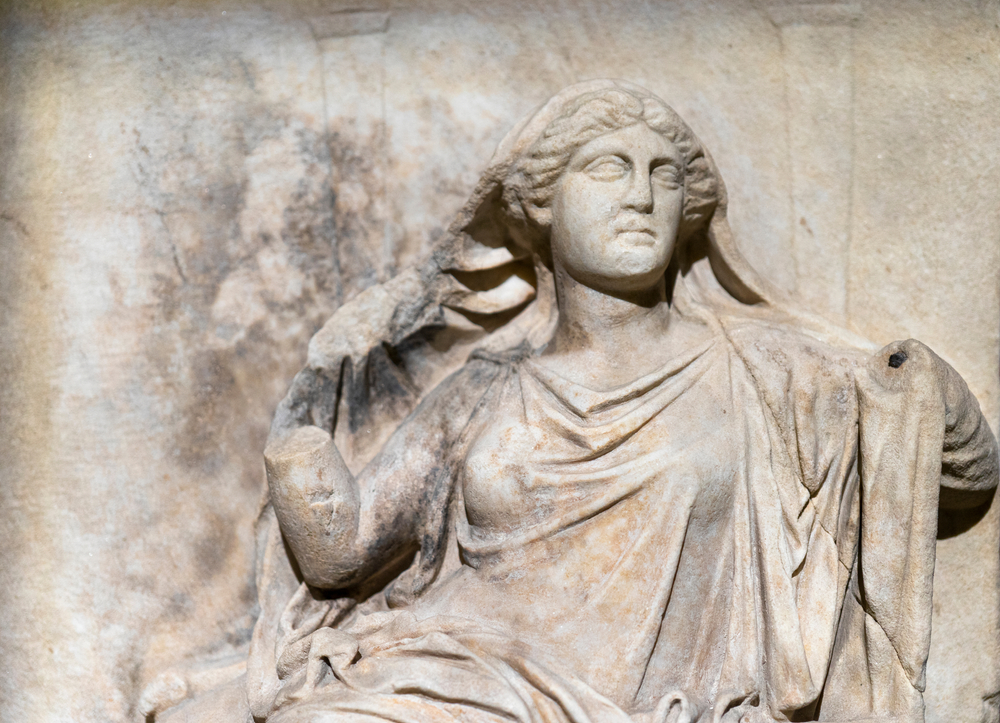
Many people have either heard of Greek gods such as Zeus, Aphrodite, and Poseidon or their Roman counterparts, Jupiter, Venus, and Neptune. They were exposed to these characters in school, as part of English or humanities courses that included literature based on Greek mythology. Pop culture has included film, television, and other media based on these works, to the point where some people have been named for various Greek deities and other characters. You may recognize these mythological figures as literary characters, but you may be surprised that there are modern religious movements, broadly described as Hellenism, based on ancient Greek polytheism.
What Is Hellenism?
Polytheism is the worship of multiple deities, often identified as a pantheon of gods and goddesses who often represent different qualities and have dominion over various aspects of natural and supernatural realms. The term “Hellenism” is often used as a blanket term for modern religious practices that are based on a revival or reconstruction of ancient Greek polytheism, which refers to the worship of the pantheon of twelve or thirteen gods identified in ancient Greek traditions: Zeus, Hera, Poseidon, Demeter, Athena, Ares, Aphrodite, Apollo, Artemis, Hephaestus, Hermes, and either Hestia or Dionysus.
What Are the Values of Hellenism?
The three most prominent values of modern Greek polytheism include the following:
- Eusebeia: Translated as piety or reverence for the gods, this value can also be thought of as right action. The focus here is on actions, as opposed to beliefs, that bring honor to the various members of the pantheon.
- Arete: Signifying excellence and virtue, many modern Hellenists practice this value by continuous self-improvement in pursuit of living up to one’s highest potential.
- Xenia: This virtue involves hospitality and friendship. It is practiced through generosity, gift exchange, and reciprocity with others, including guests and foreigners.
For many Hellenists, the goal is to incorporate these values into every aspect of their lives.
What Do Worship and Practice Look Like?
In Hellenistic movements, adherents view the Greek gods and goddesses as divine, very powerful, and omnipresent. At the same time, they believe that these deities also manifest locally. Within these traditions, great reverence is also shown to spiritual and physical ancestors. Worship is performed through ritual sacrifices and the celebration of sacred days through festivals.
For ritual sacrifice, making offerings and giving libations to the gods are considered to be an integral part of Hellenism. Prayers must be accompanied by sacrifices. While some engage in animal sacrifice, others will make offerings of food that are symbolic of certain animals, such as fruits and baked goods. There are a number of sacred days that are observed within Hellenism, the dates of which are indicated by the lunisolar Athenian calendar. Festivals are organized, wherein adherents commemorate Greek history, honor specific deities, and make special offerings. For many Hellenistic adherents, there is room to adopt and adapt religious practices based on what feels correct as well as what works with modern living.
Are There Temples or Places of Worship?
One of the first modern Hellenic temples was completed in 2009 in Oraiokastro. Nearly a decade later, another temple was opened in nearby Mesaia. A modern place of worship in Athens is currently planned for construction in the future. Although many Pagan groups incorporated ancient Greek religious elements into their faiths through syncretism in the twentieth century, official recognition of Hellenism is very recent. In 2006, an Athenian court officially acknowledged the veneration and worship of the Greek pantheon. Hellenism was determined an official religion in Greece in 2017.
While Greek gods such as Apollo, Hermes, and Hera are literary figures to many people, to adherents of Hellenistic religious movements, they are powerful deities worthy of worship. Ancient Greek polytheism has been revived and rebuilt as various religious movements, collectively known as Hellenism. It has the curious quality of being both ancient and relatively new at the same time.

